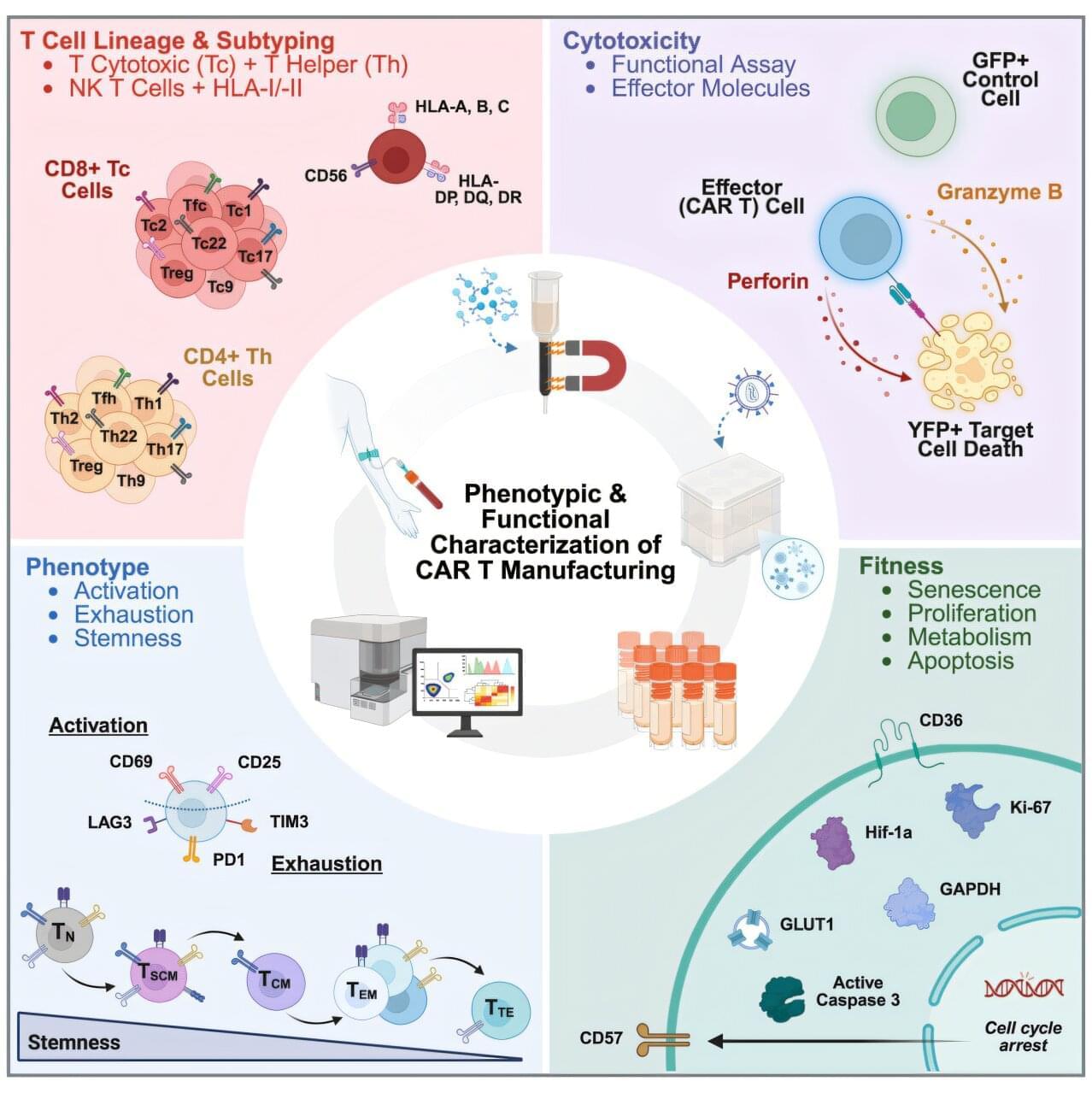A team of researchers from the Keck School of Medicine of USC has developed an advanced tool for analyzing chimeric antigen receptor (CAR) T cells, including how they evolve during manufacturing and which ones are most effective at killing cancer. Using the platform, which leverages a laser-based technology known as spectral flow cytometry, researchers have already found one key insight: CAR T cells are better equipped to fight cancer after a shorter five-day expansion process than at the 10-day mark.
The study was just published in the 25th anniversary special issue of Molecular Therapy.
CAR T cell therapies, which reprogram a patient’s own immune cells to recognize and attack cancer, represent a major advance in treating blood cancers such as leukemia and lymphoma. But not all patients respond equally well, and researchers believe one key to optimizing treatment is to understand how various T-cell features relate to patient outcomes down the line.
